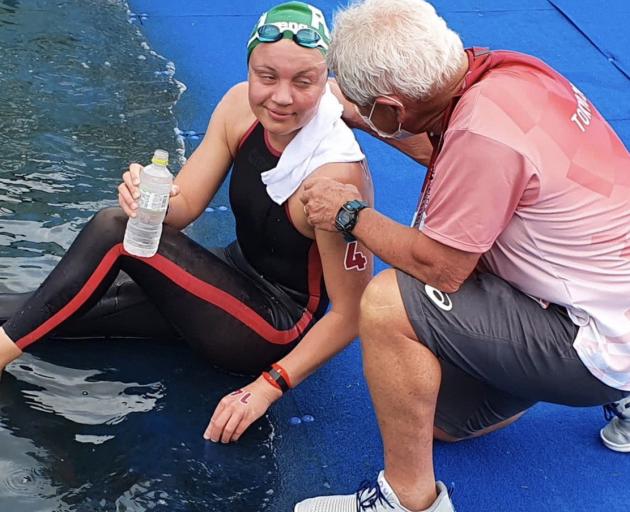
He completed a “loop’’ of sorts when he attended the Tokyo Olympics recently. It was his 11th Games.

The 76-year-old has been a team doctor, a chef de mission and a medical commissioner.
Nothing can compare to the thrill of competing, and he got to do that 57 years earlier.
He reached the semifinals in the 200m butterfly at the 1964 Tokyo Olympics.
This time, he was working for Fina, the world swimming and water polo organisation, and his roles included Covid-19 testing and serving as an independent observer during doping control.
It was not as exciting as standing on the starting blocks but Gerrard described it as “a wonderful experience in one respect’’ in particular.
“The competition was outstanding,’’ he said.
“When it is all said and done, and despite the fact there were no spectators, when the athletes hit the water or the track, they were focused on the job at hand.’’
The performance of Dunedin 17-year-old Erika Fairweather was the highlight in the pool for the New Zealand team.
The teenager reached the final women’s 400m freestyle after shaving nearly 4sec off her personal best.
“I believe she is an intelligent and grounded athlete with a very high degree of perception.
“She will have learnt so much from those Olympics. To do a personal-best time was just outstanding,’’ Gerrard said.
“And she is well coached. Lars Humer is doing a fantastic job with her.
‘‘I really do believe she has the potential to become our next female Olympic swimming medallist because we have not had any since Jean Stewart in the backstroke at Helsinki in 1952, which is when Yvette Williams won her gold medal.
‘‘But getting back to Erika, she has stamped herself as a prospect I’m sure we will all be proud of in the future.’’
The Paralympics start next week and Gerrard said the New Zealand team could expect to arrive to a “very well organised event’’.
“When we arrived in Tokyo it was with the understanding that it was to an absolute maelstrom of Covid infection. While we were there the numbers rose to 5000 new cases a day and yet we were something of an oasis in the middle of this.’’
The Olympics, in that sense, were a beacon of hope. The event did not become the super-spreader many critics feared it would and arguably demonstrated the fight against Covid is not futile — it can be won.
‘‘There were a number of people who felt the Games could not go on safely and happily, that was proven wrong. There was no extra Covid spread in the community as a consequence of the Games.’’
Sightseeing was not part of the agenda but Gerrard noted the skyline of Tokyo had changed dramatically since his first visit in 1964.
The welcoming nature of the people and the precision with which the Games were run stuck out as another highlight.
“I was there for the swimming, the water polo and marathon swim and everything was timed to perfection and went off exceedingly well.
‘‘It was a wonderful television spectacle.’’
Gerrard was also delighted to be interviewed by a Japanese journalist who had worked out he was one of only two athletes to return from the 1964 Games.
‘‘I know a number of people who wanted to come back but decided not to and, of course, as spectators were not entitled to. So that was surprising for me to learn that there was only two of us there.’’











